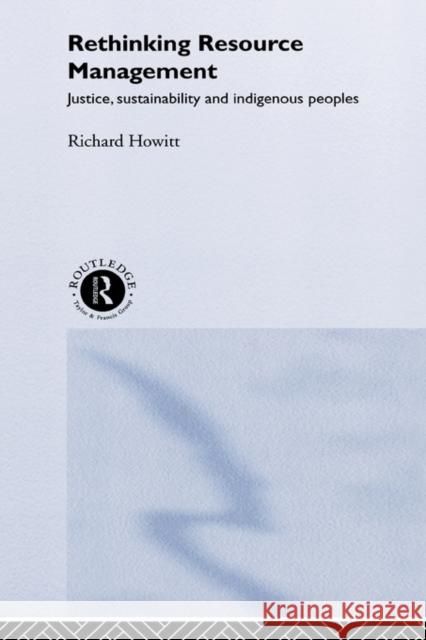Rethinking Resource Management: Justice, Sustainability and Indigenous Peoples » książka
Rethinking Resource Management: Justice, Sustainability and Indigenous Peoples
ISBN-13: 9780415123327 / Angielski / Twarda / 2001 / 464 str.
Rethinking Resource Management: Justice, Sustainability and Indigenous Peoples
ISBN-13: 9780415123327 / Angielski / Twarda / 2001 / 464 str.
(netto: 1280,13 VAT: 5%)
Najniższa cena z 30 dni: 1208,97
ok. 16-18 dni roboczych.
Darmowa dostawa!
This text offers students and practitioners a sophisticated and convincing framework for rethinking the dominant approaches to resource management in a complex world. Drawing on a deep understanding of relationships between resource projects and indigenous peoples, the book argues that usual resource management practices consider important human values irrelevant and invisible. The book uses case studies to argue that professional resource managers do not take responsibility for the social and environmental consequences of their decisions, on the often powerless and vulnerable indigenous communities they effect. It offers an approach to social impact assessment methods which are more participatory and empowering than many alternative technical approaches. By drawing on contemporary social philosophy it offers a relational framework for thinking about interaction and change in resource management systems. Finally, the book investigates methodological issues of social impact assessment, policy development, applied research and the relevance of geographical perspectives and ethics to professional practice.











